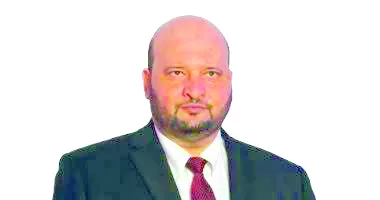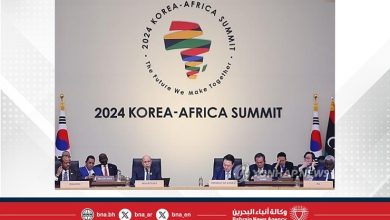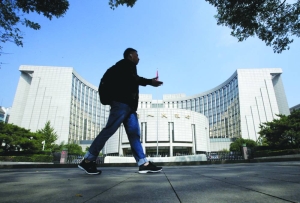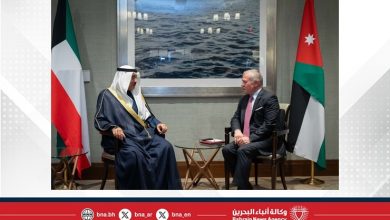International conference on “Fatwa, ethical foundation in a rapidly changing world”

Ibrahim Negm
Senior Advisor to the Grand Mufti of Egypt
In an era where acceleration defines our existence, humanity faces crises that demand profound responsibility. We are in the midst of a moral, psychological, and spiritual crisis caused by the relentless pursuit of intellectual, economic, and social dominance by forces intent on imposing a singular, materialistic model devoid of ethical vision. This worldview has created a significant spiritual void, fostering extremism and moral decay. Both sides of this spectrum neglect the spiritual and ethical dimensions crucial for holistic human development.
These crises are compounded by global challenges such as poverty, hunger, and the widespread absence of justice. The lack of ethical human awareness is evident in the inability to prevent conflicts. It is within this context that we bear a profound responsibility to leverage fatwa work to solidify the system of religious and human values and ethics.
Role of fatwas in addressing ethical challenges
The ninth international Fatwa conference, organised by the General Secretariat for Fatwa Authorities Worldwide, is dedicated to addressing these critical concerns. This year’s theme, “Fatwa and the Ethical Foundation in a Rapidly Changing World,” seeks to foster dialogue and collaboration among fatwa authorities and institutions. The conference aims to explore the significant roles these bodies can play in fortifying the ethical order, particularly through the issuance of fatwas.
Fatwas, as authoritative Islamic legal opinions, hold immense potential in consolidating shared human principles and values. They are instrumental in addressing ethical challenges that have become a human necessity amid the ongoing conflicts and crises faced globally. This dialogue is particularly vital in light of the relentless effort to neutralize the moral and ethical elements amidst rapid and successive developments.
Conference goals, participants
The conference brings together a diverse array of participants, including Grand Muftis, religious ministers, clerics, and select representatives from international organisations such as the United Nations, Inter-Parliamentary Union (IPU), the European Union (EU) and Kaiciid Dialogue Centre. The primary goal is to explore how fatwas can serve as tools for reinforcing ethical foundations, promoting shared values, and providing guidance in navigating the ethical dilemmas of our time.
Ethical implications of technological advancements
The rapid advancements in technology, particularly in areas such as artificial intelligence, pose unique ethical challenges. It is imperative that ethical considerations are prioritised in the development and application of these technologies to ensure that progress does not come at the expense of our shared moral values. Fatwas can provide the ethical guidance necessary to navigate the complex moral landscape shaped by these technological advancements.
Building morally resilient society
Engaging in this discourse aims to strengthen the role of fatwas in maintaining moral integrity and ensuring that the rapid advancements of our world do not erode our ethical standards. This collaborative effort is essential for building a future where progress and morality coexist harmoniously, safeguarding the existential value of every individual.
The fruitful discussions and outcomes of this conference are anticipated to contribute significantly to a more ethically grounded and morally resilient global society. By reinforcing ethical foundations through fatwas, we can address the spiritual void and moral decay caused by a materialistic worldview and work towards a more just and compassionate world.
Need for ethical fatwas in a fragmented world
In today’s fragmented world, where varying ideologies and beliefs often clash, the role of ethical fatwas becomes even more critical. Fatwas serve not just as religious decrees but as bridges connecting different communities and guiding them towars a common moral ground. This responsibility is magnified in a world where the erosion of traditional values has led to confusion and conflict.
Fatwas can offer clarity and direction in ethical quandaries, helping individuals and societies navigate complex issues such as bioethics, environmental sustainability, and social justice. By grounding these discussions in a framework of shared human values, fatwas can promote a sense of unity and collective responsibility.
Addressing global ethical dilemmas
One of the core objectives of the conference is to address global ethical dilemmas through the lens of Islamic jurisprudence. This involves tackling issues such as climate change, economic inequality, and human rights abuses. The role of fatwas in these areas can be transformative, offering ethical perspectives that are both rooted in tradition and responsive to contemporary challenges.
For instance, in the realm of environmental ethics, fatwas can draw upon Islamic teachings that emphasise stewardship of the Earth. They can advocate for sustainable practices and policies that protect natural resources and ensure the well-being of future generations. Similarly, in addressing economic inequality, fatwas can promote principles of fairness, charity, and social welfare, urging actions that alleviate poverty and promote economic justice.
Ethical fatwas in context of modern life
The conference also seeks to contextualise ethical fatwas within the realities of modern life. This includes recognising the diverse contexts in which Muslims live and the varying challenges they face. By considering local customs, socio-economic conditions, and cultural nuances, fatwas can be more effectively tailored to meet the specific needs of different communities.
In addition, the conference will explore the role of digital technology in the dissemination and implementation of fatwas. The digital age offers unprecedented opportunities for reaching wider audiences and engaging with them in meaningful ways. Online platforms can facilitate the spread of ethical fatwas, making them accessible to Muslims around the world and enabling real-time interactions with scholars.
Collaboration, knowledge exchange
Another key aspect of the conference is fostering collaboration and knowledge exchange among fatwa authorities and institutions. By bringing together scholars from diverse backgrounds and regions, the conference aims to create a rich tapestry of insights and perspectives. This collaborative approach can lead to the development of more nuanced and comprehensive fatwas that address the multifaceted nature of ethical issues.
Participants will have the opportunity to share best practices, discuss case studies, and explore innovative approaches to fatwa issuance. This exchange of ideas can enhance the capacity of fatwa authorities to respond effectively to the ethical challenges of our time.
Promoting culture of ethical awareness
A central theme of the conference is the promotion of a culture of ethical awareness. This involves educating individuals and communities about the importance of ethical considerations in all aspects of life. By fostering a deeper understanding of ethical principles and their practical application, fatwas can inspire positive change and encourage responsible behaviour.
Educational initiatives, community outreach programmes, and public awareness campaigns can play a vital role in this endeavour. By engaging with various stakeholders, including religious leaders, educators, policymakers, and the media, the conference seeks to create a broad-based movement for ethical awareness and action.
Vision for future
As we look to the future, the role of ethical fatwas in shaping a just and compassionate world cannot be overstated. The ninth international fatwa conference represents a pivotal step in this journey, bringing together thought leaders and practitioners to address the pressing ethical issues of our time.
Through dialogue, collaboration, and innovative thinking, the conference aims to harness the power of fatwas to build a more morally resilient society. By grounding our actions in shared human values and ethical principles, we can navigate the complexities of the modern world and work towards a future where progress and morality coexist in harmony.
We look forward to the impactful discussions and initiatives that will emerge from this conference, confident that they will contribute to a more ethically grounded and inclusive global community.





